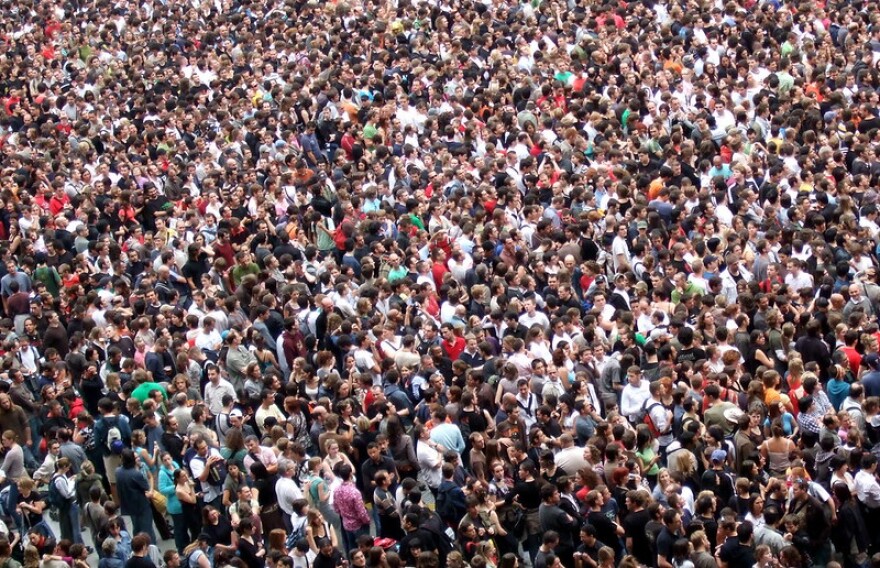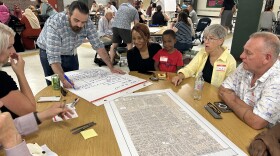To become a more inclusive movement, environmentalists are re-examining the past. Today on Outside/In, part two of our series looking back at the environmental movement's problematic anxiety around "overpopulation."
Because when people talk about overpopulation … what are they really talking about?
So Over Population (Part Two)
By Sam Evans-Brown
In the early 2000s, anti-immigrant, right-wing activists tried to take over the board of one of the oldest environmental groups in the country. How were they able to gain such a foothold?
This is the second in a two-part episode on the problematic past behind rhetoric and action regarding “overpopulation.” If you missed it, you'll want to go back and listen to Part 1.
Featuring Heidi Beirich, Derek Hoff, Frances Kissling, Dorceta Taylor, and Arthur Erken.
Wildfires and Climate Migration
By Taylor Quimby
Wildfires, like many "natural" disasters, look indiscriminate: entire towns torched, flames that spread for miles. But disaster impacts are rarely if ever distrubuted proportionally. In a new study looking back at the Thomas Fire of 2017, then the largest wildfire in California history, Michael Mendez, Assistant Professor of Environmental Policy at the University of California Irvine, reveals how migrant communities were especially let down by disaster planners and response efforts.
“We saw migrant farm workers, particularly undocumented farm workers, laboring in heavy, toxic smoke conditions without proper protective gear," said Michael. "There was no emergency evacuation orders provided in Spanish or some of the indiginous tongues of local farm workers.”
And as each wildfire season eclipses the last in scope and scale, who will be left behind in the long run? Abrahm Lustgarten is Senior Environmental Reporter with ProPublica. For the past two years, he has been studying the future of climate-related migration. Increasing heat and extreme weather are going to reshape the country, he says - and with wildfires just miles away from his own home in California, Abrahm is now wondering whether it’s time to pick up and leave. But he acknowledges that migration isn’t an option for everyone.
“Packing up and moving requires some wealth, requires some flexibility and jobs and unemployment, and a willingness to make big leaps," explained Abrahm. "You see now, in the Southern coast of Louisiana, or some of the poorer communities in Alabama, communities that should be further along in adapting but are more or less trapped and just coping with the situation as it confronts them."
Abrahm Lustgarten's new series on global climate migration is a partnership between ProPublica and the New York Times Magazine. You can read his piece, "How Climate Migration Will Reshape America" here.
Read Yvette Cabrera's reporting for Grist, where she writes about California's wildfire and Michael Mendez's research into the Thomas Fire, here.







